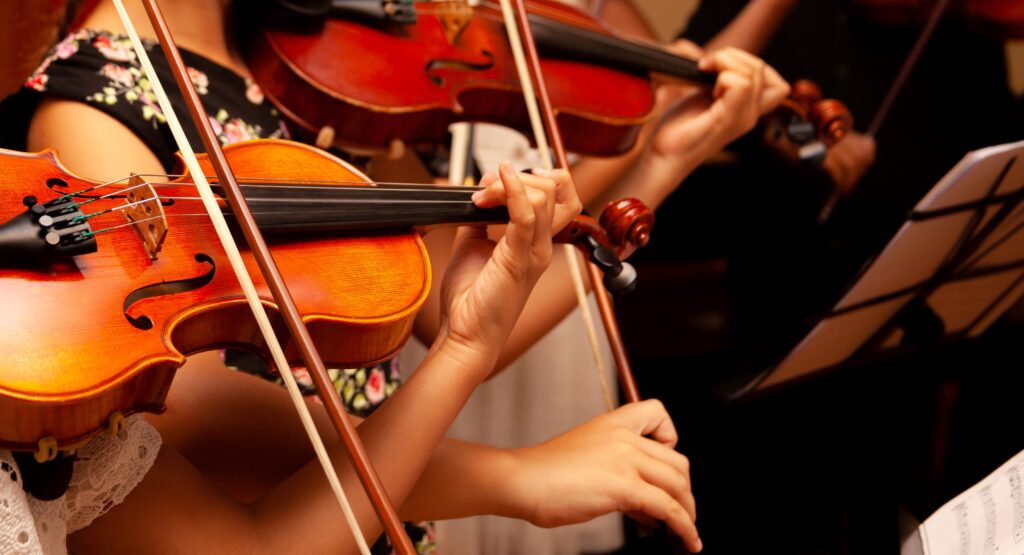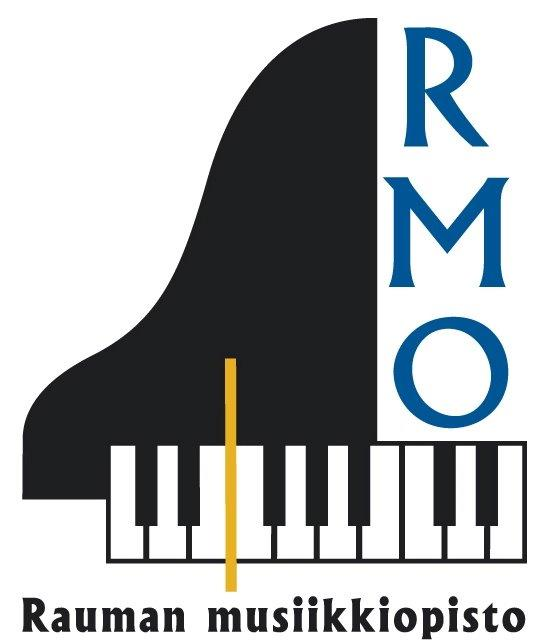Ensemble Playing and Groups

Ensemble playing is part of the student’s musical learning. Ensemble skills are studied in a specific and characteristic way for each instrument, in different modules, taking into account the age and stage of the student’s studies. The teacher of the main subject will direct the student to an orchestra or other ensemble of the appropriate level. These include the wind orchestras, string orchestras, choirs, bands and other ensembles at the institute.
Wind Orchestras / Rauma Youth Band
There are four levels of wind orchestras; D, C, B and A. The orchestras rehearse regularly on a weekly basis, and as students gain playing skills, the orchestra level changes, with beginners playing in the D orchestra.
String Orchestras
The Music Institute has string orchestras for beginners and advanced students alike: Minijouset, Jouskarit and Arcato. Iris Saviauk conducts the Minijouset and Arcato, and Jaakko Mattelmäki conducts the Jouskarit.
Choirs and Music Groups
You can register for choirs at rmo.eepos.fi. New singers are also accepted during the academic year.
Minidina Children’s Choir
The Minidina children’s choir is for girls aged 6-12. The choir sings songs suitable for children in 1-3 voices. The choir is open to all enthusiastic singers. The choir is a great place to make new friends and perform.
The group meets once a week. The choir is led by Kerttu Rapala.
Musadina Choir
The group meets once a week. The choir is led by Kerttu Rapala.
Youth Choir Melodina
The group meets once a week at Rauman lukio upper secondary school. The choir is led by Paula Kuusisto.
Kakrut
Kakrut are geared towards boys and girls of primary school age, from grades 3 to 6. The music is varied and you can apply as a singer or a musician (band and rhythm/orchestra instruments). You can join by contacting the instructor. Laura Salmi is the instructor.
Music Perception
Music perception (MuPe) is an important part of music studies. MuPe courses at different levels consist of weekly group lessons. The average starting age for MuPe studies is around 9-10 years, but you can start earlier or later. MuPe studies support the learning of music and help to understand, for example, musical notation and musical structures. The aim of MuPe studies is to be able to hear the music in the mind and to enable the student to play and work with music notation and music without the support of a music teacher. MuPe studies also provide a range of practical skills for notating songs, making your own little melodies and arrangements, or even singing from sheet music in a choir. Many MuPe topics are taught and illustrated through singing and, for example, through the keys of the piano.
You can also enrol in music perception groups if there are free places available at your level of ability.
